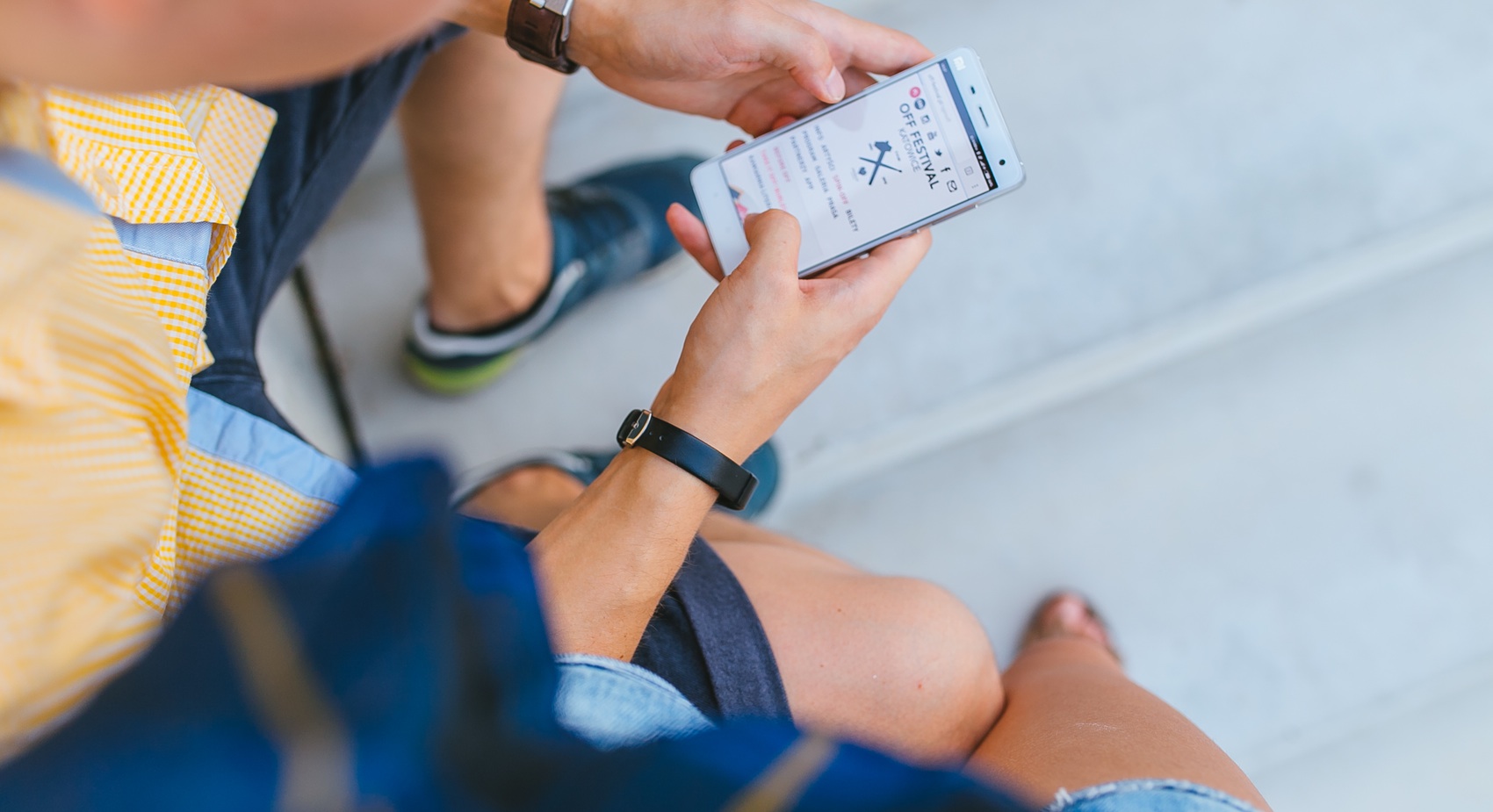You already know that you need to protect your laptop and desktop computers from hackers. A lot of people, however, never stop to wonder whether their mobile devices are also susceptible to these threats.
Since your smartphone is essentially a small computer, there is a possibility that someone will try to hack into it to steal your private information. You can protect yourself by following these four tips.

1. Avoid public Wi-Fi
Public networks offer convenient ways to access the Internet without spending more money on your phone’s data package.
Unfortunately, public Wi-Fi also puts you at risk, since savvy thieves can use man-in-the-middle attacks to intercept your data. It’s relatively easy for these people create fake networks that offer free Internet access. When you connect to them, though, the hacker can watch everything you do.
Hackers can even use this method to steal passwords to your email, credit card, and other sensitive accounts.
If you absolutely have to connect to public Wi-Fi, use a virtual private network (VPN) to prevent other people from viewing your activity. It also helps to:
- Disable file sharing.
- Turn your firewall on.
- Use HTTPS or SSL to encrypt data.

2. Only visit trustworthy websites
You could accidentally install malware on your smartphone just by visiting the wrong website. The problem is so significant that the Department of Homeland Security uses color-coded threat levels to identify dangerous sites.
It’s best to only visit sites that you know you can trust. You can always check your Gmail and Facebook accounts, for instance, without worrying that your phone will contract malware.
If you don’t completely trust a site, then you should stay away from it. That obviously means that you should steer clear of sites with questionable content. Visiting an adult website is a surefire way to compromise your phone’s security.
You also should resist the temptation to click links sent to you via email. That video of puppies playing is probably pretty cute, but it also puts you in harm’s way. Do not click it unless you know that the link will take you to a reputable site.

3. Protect yourself from Bluetooth hacking
Bluetooth makes it possible for your smartphone to connect to other devices. That’s extremely useful when you want to use wireless headphones or play songs through your car’s sound system. Bluetooth, however, can also give hackers a chance to access your phone.
Turning off Bluetooth when you aren’t using it is one of the most effective ways to protect yourself. Of course, you don’t want to keep that feature turned off all the time. What’s the point in having Bluetooth if you can’t use it?
Instead of limiting your use, use Bluetooth accessories from a trusted provider to minimize the chances that someone will hack into your phone. After all, you can never have too much security.

4. Install security apps
Installing security and anti-malware apps will help your smartphone recognize potential threats. This should protect you when you visit a website that tries to install eavesdropping software.
Some of the apps also have anti-theft features that will let you remotely wipe your phone’s data. Even if you can’t get your smartphone back, at least you can prevent the thief from stealing your information.
Some of the best security apps for Android devices include:
- Avast! Mobile Security & Antivirus
- Bitdefender Mobile Security
- Kaspersky Internet Security for Android
If you have an iPhone, then you might want to use one of these:
Having these apps will improve your smartphone’s security, but you should still take common-sense steps to protect yourself. Don’t assume that an app can always keep you safe, especially if you use public Wi-Fi or visit unknown sites often.
As more people make smartphones a daily part of their lives, the security threats from hackers will only get worse.
You can protect yourself by following these four tips to stay ahead of the hackers’ game. Any step you take to increase your smartphone’s security is a step in the right direction.
